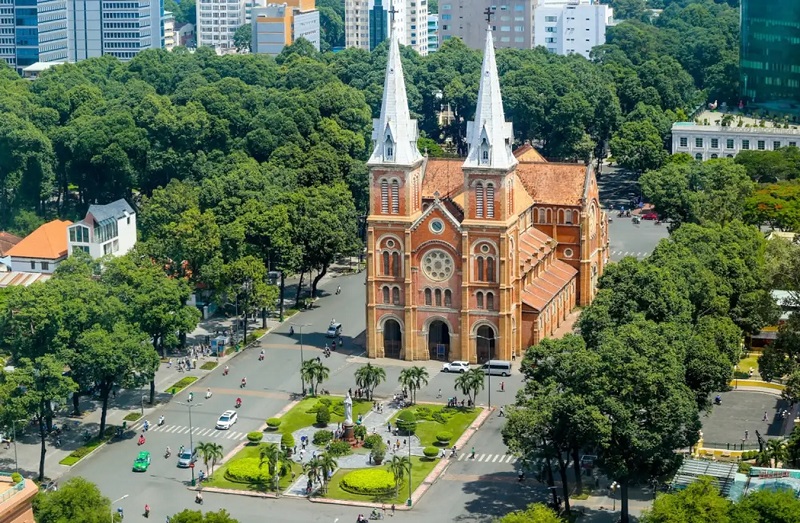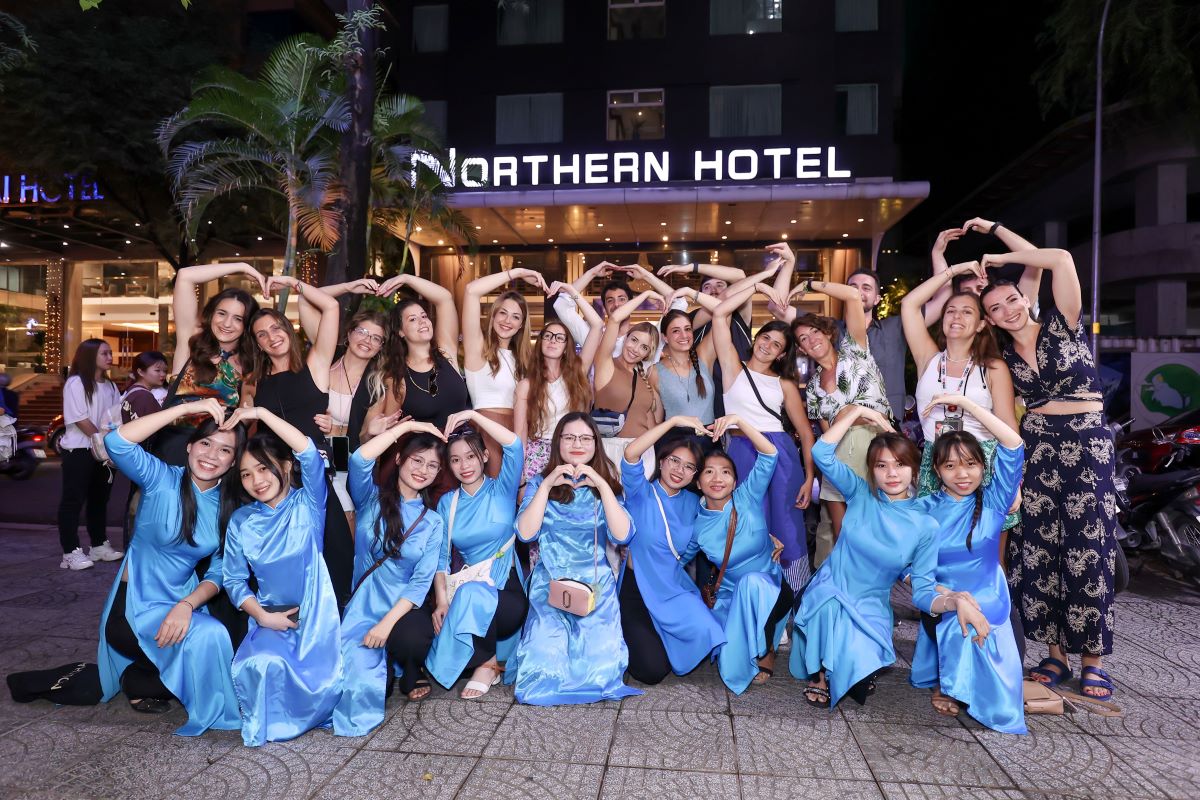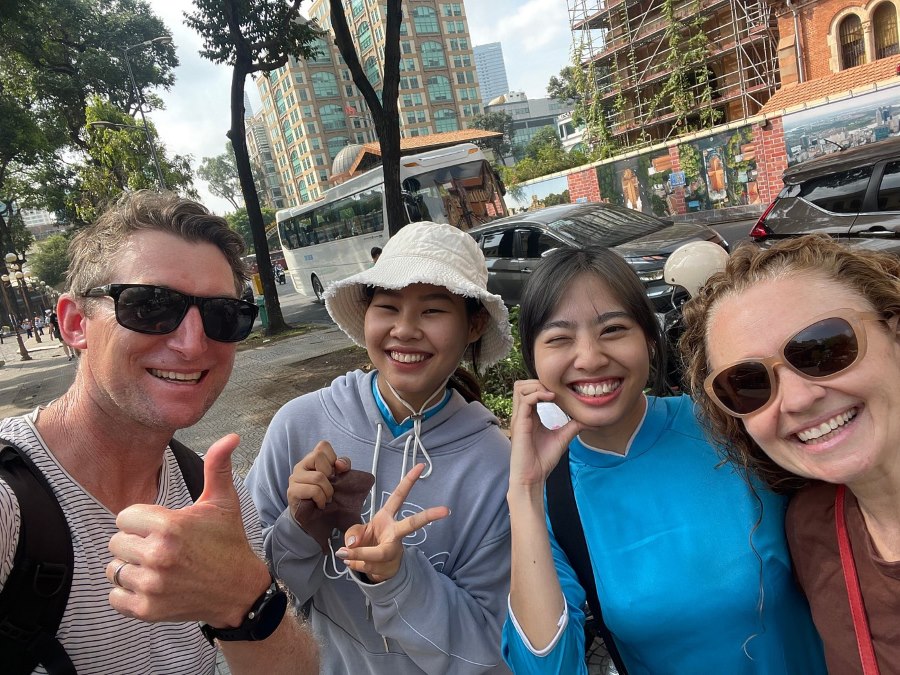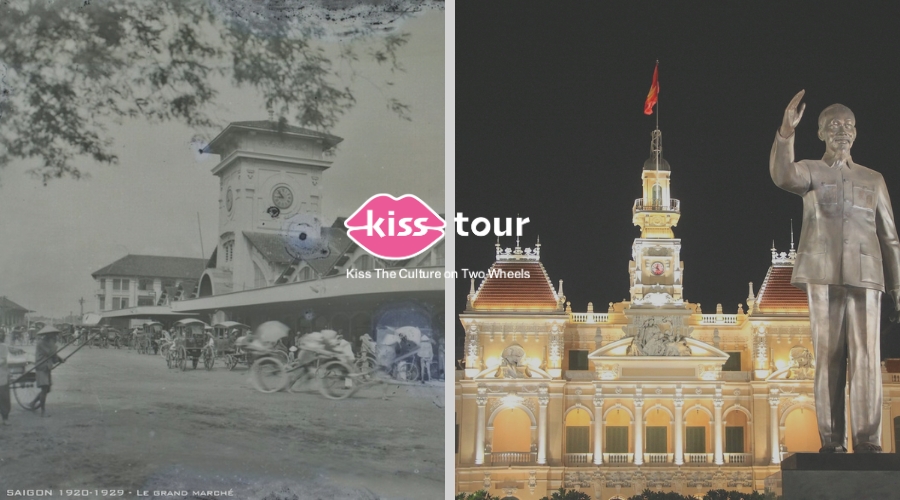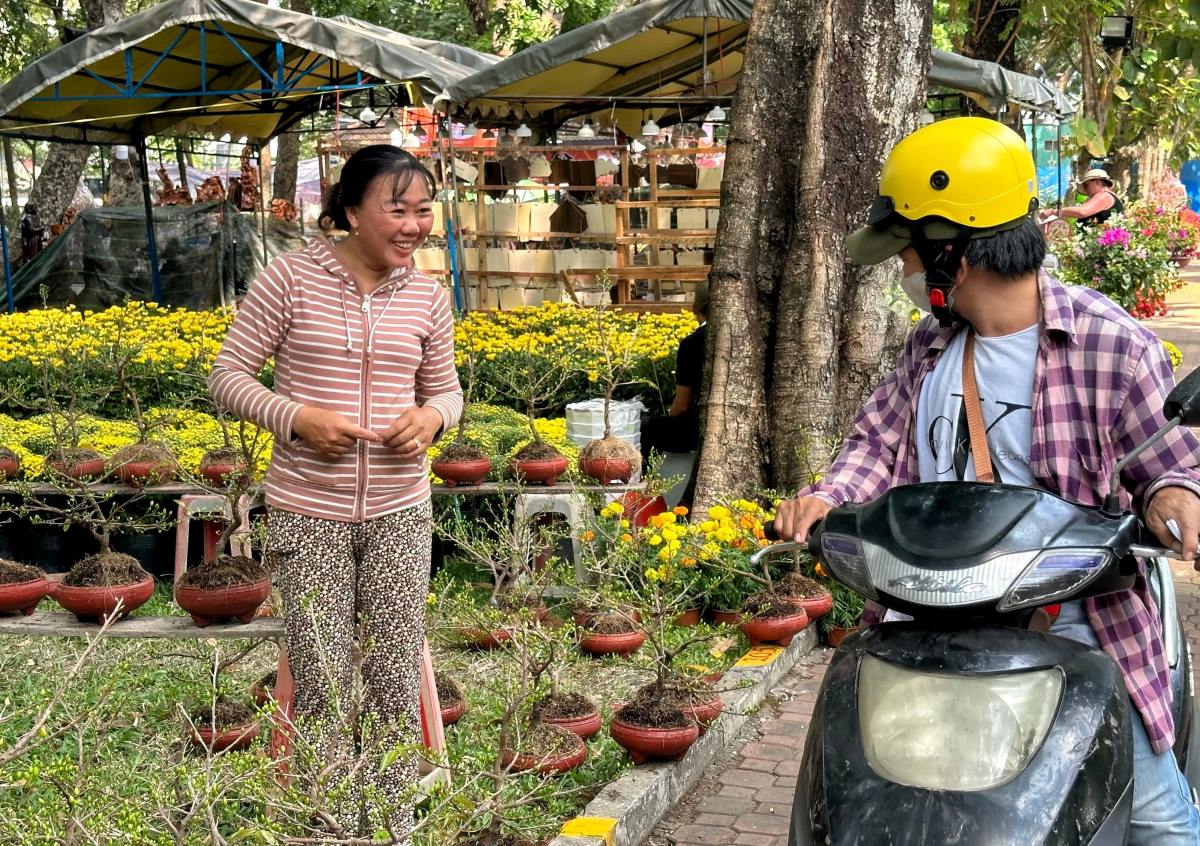
The Culture Of Bargaining In Vietnam: A Comprehensive Guide
Last updated:May 07, 2024
In Vietnam, bargaining is a dynamic yet vital aspect of daily life, adding a fascinating element to the shopping experience. From crowded marketplaces to street sellers, bargaining showcases Vietnamese enterprise, flexibility, and a strong emphasis on human relationships.
So, let's step into the world of Vietnamese marketplaces! You'll discover a beautiful tapestry of cultural exchange, pleasant conversation, and the thrill of discovering the best prices.
Table of Contents
- 1. Why Bargain in Vietnam?
- 2. How to Bargain in Vietnam?
- 3. Where to Bargain?
- 4. Where not to Bargain?
- 5. Here are some things to keep in mind when bargaining in Vietnam
- 6. FAQs
- How much Vietnamese should I learn to improve my bargaining experience? Are there any key phrases I should master?
- Is it ever acceptable to walk away from a bargain without buying?
- What are some common mistakes tourists make while bargaining in Vietnam, and how can I avoid them?
1. Why Bargain in Vietnam?
Bargaining is deeply rooted in Vietnamese society; therefore, it is a frequent practice across the country. Whether shopping in busy marketplaces or interacting with street vendors; price negotiations are to be expected and encouraged. This cultural norm derives from Vietnam's flexible pricing structure, in which initial rates are generally set higher, allowing room for negotiation. The practice enhances the purchasing experience by instilling excitement and adventure, as well as encouraging cultural interchange between consumers and vendors.
Aside from being an interactive and enjoyable experience for visitors, bargaining in Vietnam has other benefits that make it worth considering. For example, it allows you to purchase things at reduced prices, letting you stretch your budget and get greater value for the money you spend. Moreover, the flexibility and customization offered through negotiation enable you to tailor your purchases to meet your specific preferences and needs.
2. How to Bargain in Vietnam?
One time, I got the chance to observe my customer bargaining in Vietnam for the first time. It was his first time in Ho Chi Minh City, so he did tons of research about places to go, what to do, and things to keep in mind. That was how he found out about the culture of bargaining in Vietnam, and he learned some basic tips that he found online.
During his stay in Ho Chi Minh City, I took him to the Ben Thanh Market, where he put all his online bargaining lessons to good use. He was looking for a Non La (conical hat) to buy as a souvenir, and the vendor told him the initial price was 500,000 VND. Now, 500,000 VND is too expensive for a Non La, so they had a short interaction like this:
- Customer: “It’s too high; how about 100,000 VND?” Keeping his friendly smile, he repeated the words in Vietnamese: “Cao quá (too high), giảm đi giảm đi (please give me some discount)”
- Vendor: “No, too low, too low; how about 200,000 VND?” She declined, but with a little laugh, not a grumpy look.
- Customer: “No, no, 100,000 VND.” He continued to repeat it with a smile while firmly persuading her to let him pay the lower price.
- Vendor: “How about 150,000 VND?” She thought for a while and put out another reasonable price
- Customer: “No, no, 100,000 VND, please; if not, I will just go.” He smiled when he said that, but began to put the Non La down and started pretending to walk away.
- Vendor: “Okay, okay, I sell for 100,000 VND.” She agreed, looking defeated but still smiling throughout the negotiation, and started putting the hat in a bag for him.
- Customer: “Okay, 100,000 VND, right? Cam on, cam on. (Thank you, thank you.)” He was happy that his bargain worked out, then he paid and gave her a smile before taking off.
That was how his first bargain in Ho Chi Minh City went; he was excited and happy that he got a good deal, and the vendor was not angry with him. If you want to experience the same positive interactions when bargaining, here are a few tips for you:
- Do your research: Get a general idea of fair prices for the items you want. Ask at your hotel, browse online, or observe what locals pay.
- Start low: A good rule of thumb is to start at about half the asking price. Don't be afraid to go lower if the initial price seems outrageously high.
- Walk away strategy: Be prepared to walk away if you're not happy with the price. Often, this prompts the seller to call you back with a better offer.
- Stay calm and friendly: A smile goes a long way. Avoid getting frustrated or confrontational.
- Use a calculator: This avoids misunderstandings due to language barriers.
- Know your limit: Decide beforehand the maximum you're willing to pay, and don't go over it.
- Learn a few basic Vietnamese phrases: This can help in negotiations and show respect for the local culture, which I will provide in the FAQ section below.
3. Where to Bargain?
In Vietnam, bargaining is typically practiced in local markets, street stalls, and smaller, independently-owned shops. Here are some common places where you can engage in bargaining:
- Traditional Markets: Traditional markets, or "chợ" in Vietnamese, are lively sites of trade where merchants offer a variety of things, including fresh produce, apparel, accessories, souvenirs, and more. Examples include Ho Chi Minh City's Ben Thanh Market or An Dong Market, Hanoi's Dong Xuan Market, and Hoi An's Central Market.
- Night Markets: Many cities and tourist attractions in Vietnam feature night markets that provide a lively environment and a wide range of merchandise. These marketplaces are frequently open in the evenings and offer opportunities to bargain. Examples include Hanoi Night Market, Hoi An Night Market, and Nha Trang Night Market.
- Street Vendors: Street sellers can be found in most Vietnamese cities, particularly in famous tourist destinations. These vendors sell a variety of things, including street food, clothing, jewelry, and souvenirs. Bargaining is prevalent when shopping from street sellers, especially for non-food products.
- Craft Villages: Vietnam is famous for its traditional craft villages, where craftsmen create handcrafted items such as ceramics, textiles, lacquerware, and more. Many craft villages offer workshops or shops where visitors can interact with craftspeople and negotiate prices.
- Tailor Shops: Vietnam is well-known for its economical and excellent tailoring services. When getting clothes created at tailor shops, negotiating is common, especially if you are ordering numerous things or need specific adjustments.
4. Where not to Bargain?
However, you can't bargain everywhere in Vietnam. There are certain places where bargaining is not typically practiced, or may be considered inappropriate. Here are some examples of where you generally should not bargain:
- Established Retail Stores: Larger retail businesses, department stores, and supermarkets in Vietnam typically show fixed prices for their products. Bargaining is neither expected nor customary in these places.
- Restaurants and Cafes: Bargaining is not common at restaurants, cafes, or food establishments. Meal and beverage prices are normally displayed on the menu, and no negotiations are expected. In general, it is best to pay the quoted price for your meals or drinks in these settings.
- Hotels and Accommodations: When reserving hotel rooms or accommodations in Vietnam, prices are often predetermined, and negotiation is not popular. Instead, pricing is usually decided by accommodation type, amenities, and time of year. It is recommended to inquire about any available promotional rates or discounts directly with the hotel or through internet booking sites.
- Tourist Attractions and Entry Fees: Entry fees to prominent tourist destinations, museums, historical sites, and landmarks in Vietnam are often fixed and non-negotiable. The prices are determined by the authorities or groups that manage the locations, and negotiating is not expected or permitted.
- Transport Services: Taxis, ride-sharing services, and public transportation fares in Vietnam are largely fixed and should be respected. Negotiating prices with taxi or ride-sharing drivers is not typical. Instead, it is encouraged to employ meters or pre-negotiated prices with drivers.
5. Here are some things to keep in mind when bargaining in Vietnam
Before practicing your negotiation skills in the marketplaces in Vietnam, here are a few things to keep in mind in order to have a fun, fair, and exciting interaction with the locals:
- Approach with Politeness and Respect: Begin the bargaining process in a friendly and respectful manner. Maintaining a friendly manner will help you develop a positive interaction with the vendor, as Vietnamese culture favors politeness.
- Start with a Reasonable Offer: Begin the bargaining process by giving a price significantly less than your intended ultimate price. This enables you to negotiate while demonstrating to the seller that you are serious about achieving a fair agreement.
- Use Non-Verbal Communication: In circumstances where language barriers exist, try nonverbal communication or use body language to express your intended message. To help people comprehend, you can utilize gestures, show numbers on a calculator, or write down amounts.
- Don't Bargain Unreasonably: While bargaining is expected, it is important to be fair and avoid pushing too hard for an incredibly cheap cost. Remember that vendors must earn a livelihood as well, and giving ridiculously low prices may be insulting or lead to an unpleasant experience.
- Examine the Quality and Finishing: Examine the product thoroughly for signs of low quality, such as bad stitching, flimsy materials, or uneven printing. Authentic products are typically produced with greater attention to detail and better overall workmanship.
- Enjoy the Experience: Bargaining in Vietnam should be a fun and interesting rather than stressful experience. Accept the cultural side of negotiation, embrace the local market ambiance, and enjoy interacting with the merchants. It provides an opportunity to learn about local cultures and interact with the Vietnamese people.
6. FAQs
How much Vietnamese should I learn to improve my bargaining experience? Are there any key phrases I should master?
You don’t actually need to learn a lot of Vietnamese words to improve your bargaining experience; just some basic words and numbers will help convey your desired price to the vendors.
Numbers
- Một: One
- Hai: Two
- Ba: Three
- Bốn: Four
- Năm: Five
- Sáu: Six
- Bảy: Seven
- Tám: Eight
- Chín: Nine
- Mười: Ten
- Trăm: Hundred* (add this after a number to get your desired hundred number)
- Nghìn: thousand* (add this after a number to get your desired thousand number)
*For example:
- Một trăm: One hundred.
- Ba nghìn: Three thousand
Basic phrase
- "Bao nhiêu?": How much? - This is the go-to for asking the price.
- "Cao quá!": Too high - Signal the price is too expensive using a surprised tone
- "[Price] được không?": Is this [Price] okay? - Offer the price you're willing to pay.
- "Giảm đi": Lower, please - Use this when you're close to a price you like but want to push a tiny bit lower
- "Không, cảm ơn": No, thank you - Politely walk away if the price isn't right
Is it ever acceptable to walk away from a bargain without buying?
Yes, it is perfectly acceptable to walk away from a bargain without buying when traveling in Vietnam. Don’t be afraid to walk away, but remember to show respect by saying thank you before walking away. Here are a few reasons to consider if you should walk away from a bargain:
- Quality: Carefully inspect the product before buying. If the product seems to be of poor quality or not as you expected, don't be afraid to walk away.
- Price: While haggling is a normal part of the buying culture in Vietnam, you should not overpay or feel pressured to buy something you don't genuinely want.
- Pressure: Some salespeople may use tactics to make you feel obligated to buy. Stay calm and confident, and don't hesitate to leave if you feel.
- Actual need: Only buy things you genuinely need or really like. Avoid buying things just because they are cheap or because you feel pressured.
What are some common mistakes tourists make while bargaining in Vietnam, and how can I avoid them?
Bargaining is an essential part of the shopping experience in Vietnam, and it can be a fun and rewarding way to get a good deal. However, tourists often make common mistakes that can lead them to overpay or get scammed. Here are some of the most common mistakes tourists make while bargaining in Vietnam and how you can avoid them:
Mistake 1: Not doing their research
Before you start bargaining, it's important to have a general idea of what the fair price for an item is. You can do this by researching online, asking locals, or checking out prices at other shops. If you don't have a good idea of what the fair price is, you're more likely to overpay.
Mistake 2: Starting too high
When you start bargaining, it's important to start with a price that is lower than what you're willing to pay. If you start too high, the seller will be less likely to negotiate with you. A good rule of thumb is to start at about half of the asking price.
Mistake 3: Not being patient
Bargaining can take time, so it's important to be patient. Don't get frustrated if you don't get the price you want right away. Just keep walking away and coming back, and eventually, you'll get a price you're happy with.
Mistake 4: Being afraid to walk away
If you're not happy with the price, don't be afraid to walk away. The seller may come back to you and offer you a better price. If they don't, there are plenty of other shops where you can buy the same item.
Mistake 5: Not being respectful
Bargaining should be a fun and respectful experience. Always be polite and respectful to the seller, even if you're not happy with the price.
You might also like...
Top Vietnam Travel Apps Every Explorer NeedsMay 18, 2024 00:14:43 5 views
Uncover the Top Vietnam Travel Apps to Enhance Your Journey. From flight booking to culinary exploration, these apps have you covered!Read More
How to Travel in Vietnam? - Updated 2024May 18, 2024 00:14:30 7 viewsLearn how to travel in Vietnam with ease! This updated 2024 guide details transportation options, costs, and essential tips for a smooth and unforgettable journey.Read More
When Is The Best Time To Visit Vietnam? - UPDATED 2024May 15, 2024 13:34:19 15 viewsFind the best time to visit Vietnam in 2024! This guide breaks down regional climates and offers tips for beachgoers, adventurers, and more.Read More
Convenient Places to Stay in Ho Chi Minh City, Ranging from Budget to LuxuryMay 15, 2024 13:36:07 17 viewsDiscovering the best places to stay in Ho Chi Minh City, offering a spectrum of options to suit every budget and taste, from economical to opulent.Read More
A detailed itinerary for 4 days in Ho Chi Minh City - Updated 2024May 11, 2024 07:01:20 18 viewsFirst time traveling to Ho Chi Minh City and don’t know where to visit or what to try? Check out this recommended, detailed itinerary for 4 days in Ho Chi Minh City.Read More
What To Do In Ho Chi Minh City In 3 Days?May 05, 2024 20:47:16 25 viewsIs 3 days enough in Ho Chi Minh City? Here is our recommended 3-day itinerary in Ho Chi Minh City. It will help you explore all the city has to offer. Read now.Read More
Tipping culture in Vietnam - How much should I tip tour guide in Vietnam?Apr 21, 2024 19:24:20 26 viewsHow much should I tip a tour guide in Vietnam? Uncover the reasons behind tipping practices and learn about appropriate tipping etiquetteRead More
2 Days in Ho Chi Minh City for First-Timers | Experience Something NewMay 11, 2024 07:33:55 25 viewsPlan an exciting trip for first-timers with 2 days in Ho Chi Minh City. Explore famous landmarks, enjoy unique street food and the vibrant life of the city. Read now!Read More
Safest Districts In Ho Chi Minh City for First-Time Visitors May 16, 2024 09:34:47 25 viewsSafest Districts In Ho Chi Minh City for first-time travelers seeking peace of mind. Discover where to stay for the best combination of safety and tourist attractions.Read More
Is Saigon Safe for Tourists and Solo Female Travelers?May 16, 2024 14:15:54 42 viewsIs Saigon safe for tourists? It is, but be aware. Learn about common concerns and how to stay safe in Ho Chi Minh City.Read More
Is It "Saigon" Or "Ho Chi Minh" City? A Tale Of Two NamesMay 17, 2024 12:19:13 26 viewsDo you say Saigon or Ho Chi Minh City? Let Kisstour help you unveil the meaning behind the tale of two names.Read More
One Day In Ho Chi Minh City - Following The LocalsMay 18, 2024 00:29:10 53 viewsSaigon - Vietnam's cultural heart blends East and West in its food, nightlife, and open-minded youth. Join me for a vibrant adventure - one day in Ho Chi Minh City!Read More
